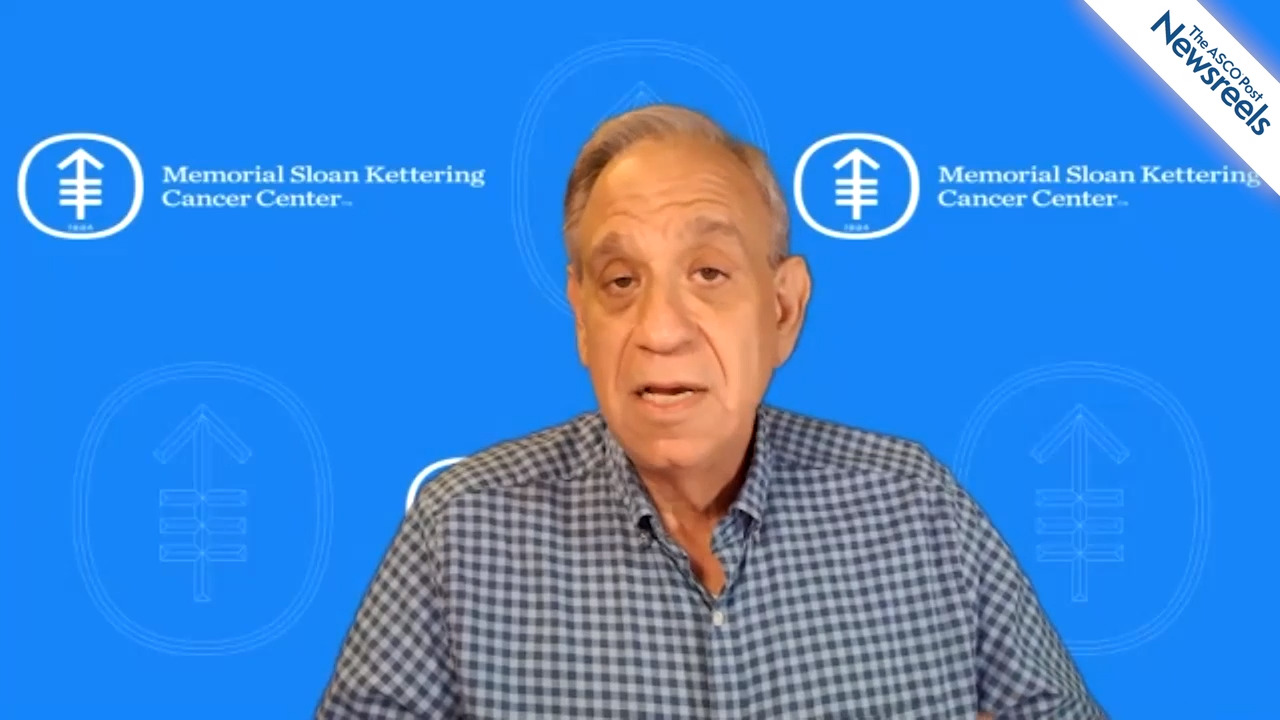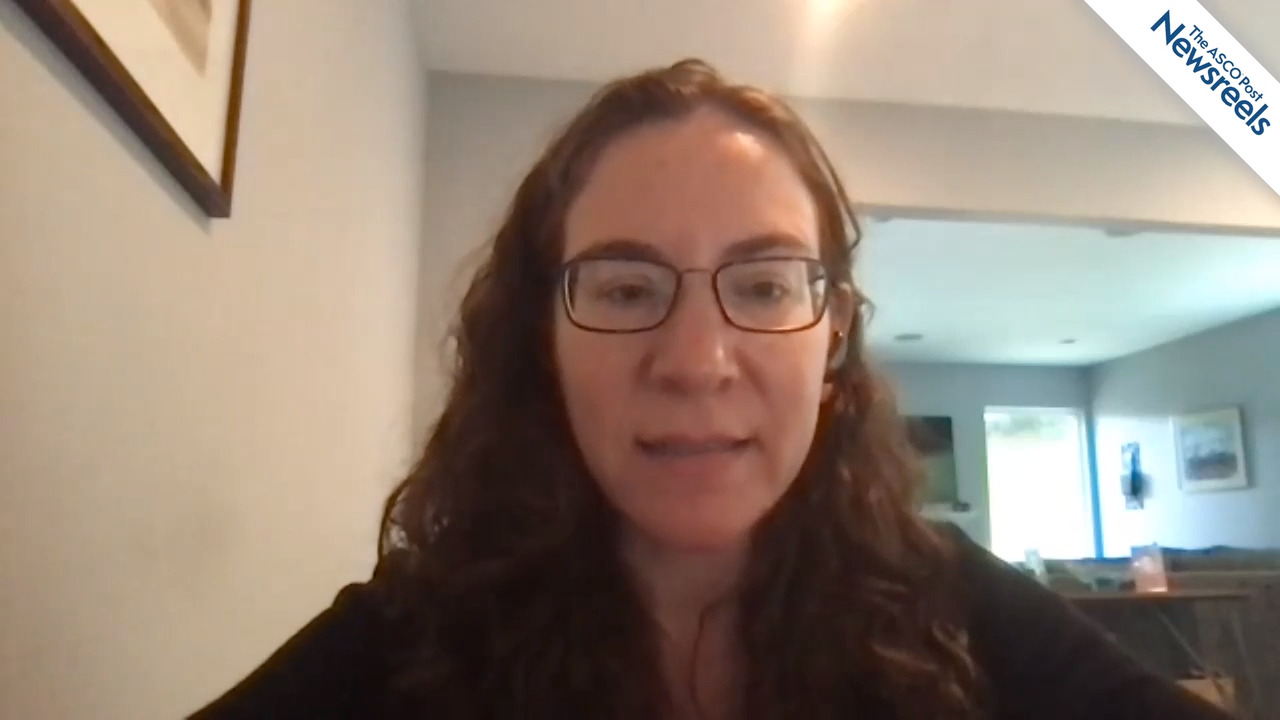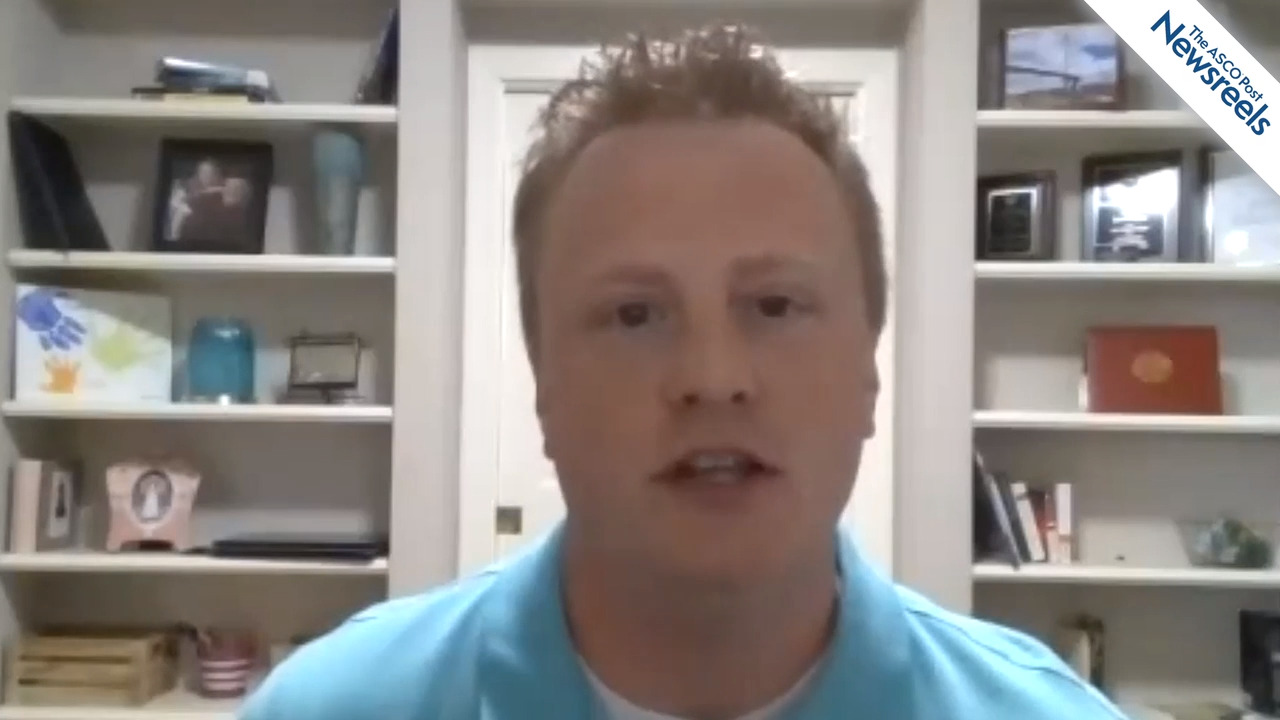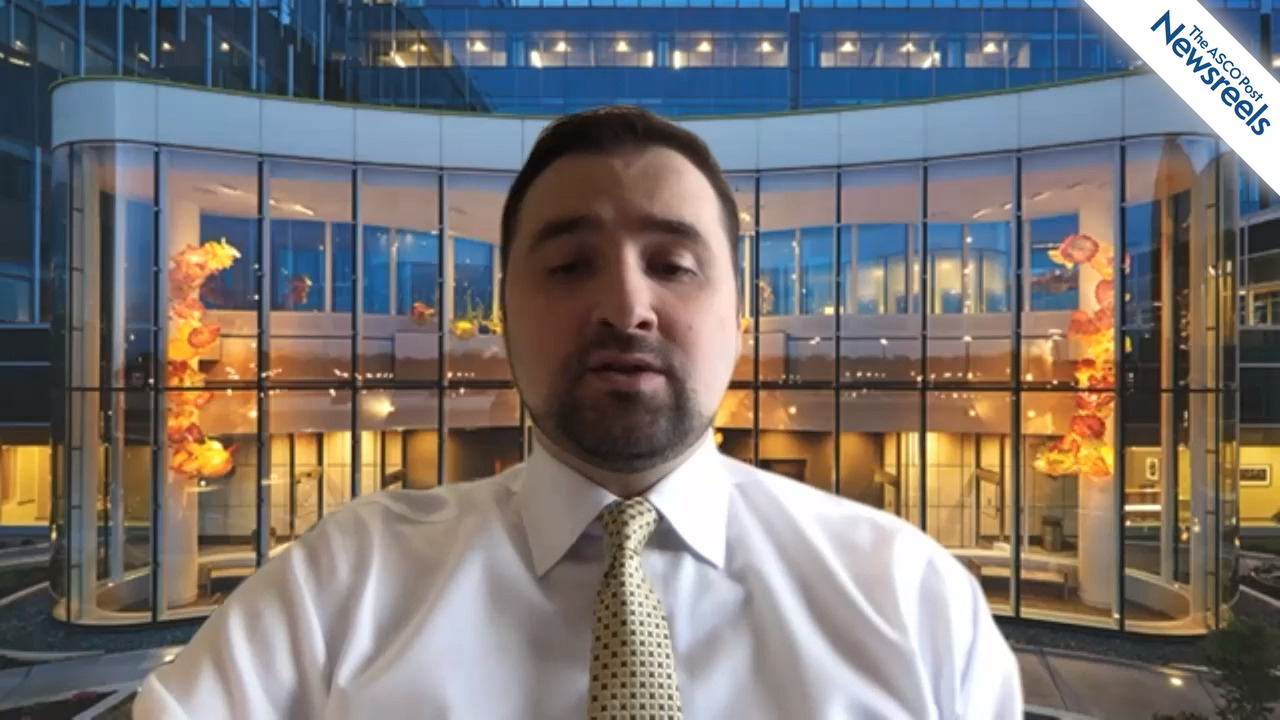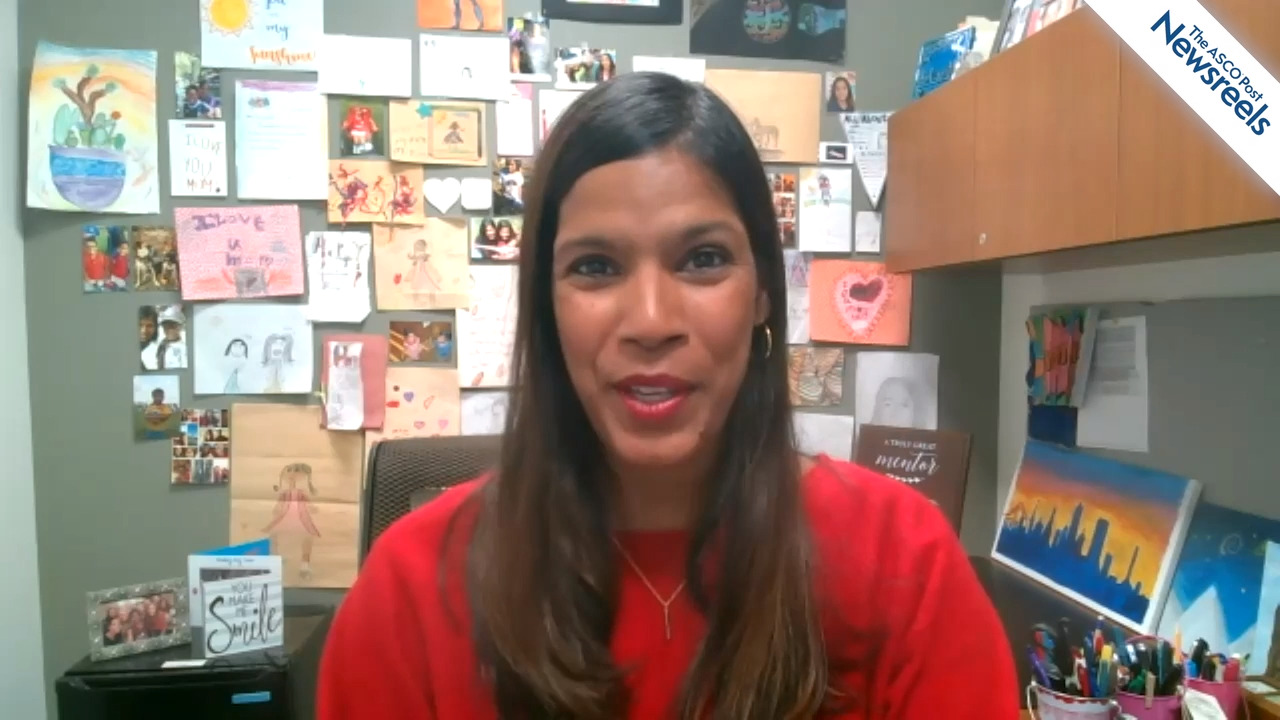Related Videos
Andrew D. Zelenetz, MD, PhD, on MRD Testing in the Management of Non-Hodgkin Lymphoma
Andrew D. Zelenetz, MD, PhD, of Memorial Sloan Kettering Cancer Center, discusses the role of minimal residual disease evaluation in the treatment of non-Hodgkin lymphoma, techniques used to predict relapse such as immunosequencing and CAPP-Sequencing, and whether such assays could replace the use of imaging with its attendant radiation exposure.
Alison J. Moskowitz, MD, on ABVD in Hodgkin Lymphoma: Adding Brentuximab Vedotin and Checkpoint Inhibitors to Standard Treatment
Alison J. Moskowitz, MD, of Memorial Sloan Kettering Cancer Center, discusses the combination ABVD (doxorubicin, bleomycin, vinblastine, and dacarbazine), individualized approaches for treating patients with Hodgkin lymphoma, and novel methods for risk stratification.
Jared E. Matya, PharmD, BCOP, on Supportive Therapies for Side Effects Related to Novel Oral Treatments
Jared E. Matya, PharmD, BCOP, of Nebraska Medicine, discusses oral agents and their toxicity profiles, as well as newer-generation agents that are often more selective and better tolerated. He describes how toxicity monitoring and management help to ensure patients with cancer remain on treatment.
Muhamed Baljevic, MD, on Multiple Myeloma: Review of Novel Management Strategies
Muhamed Baljevic, MD, of the University of Nebraska Medical Center, reviews the outlook for treating patients with relapsed and refractory multiple myeloma, the rapidly expanding array of therapeutic options with novel mechanisms of action, and the challenges of sequencing treatments.
Nina Shah, MD, on Newly Diagnosed Multiple Myeloma: Novel Combination Therapies
Nina Shah, MD, of the University of California, San Francisco, discusses triplet drug combinations that are the current standard of care for transplant-eligible and -ineligible patients with multiple myeloma, as well as quadruplet therapies that demonstrate depth of response in newly diagnosed cases, where they may become the standard of care along with transplantation and maintenance treatments.
